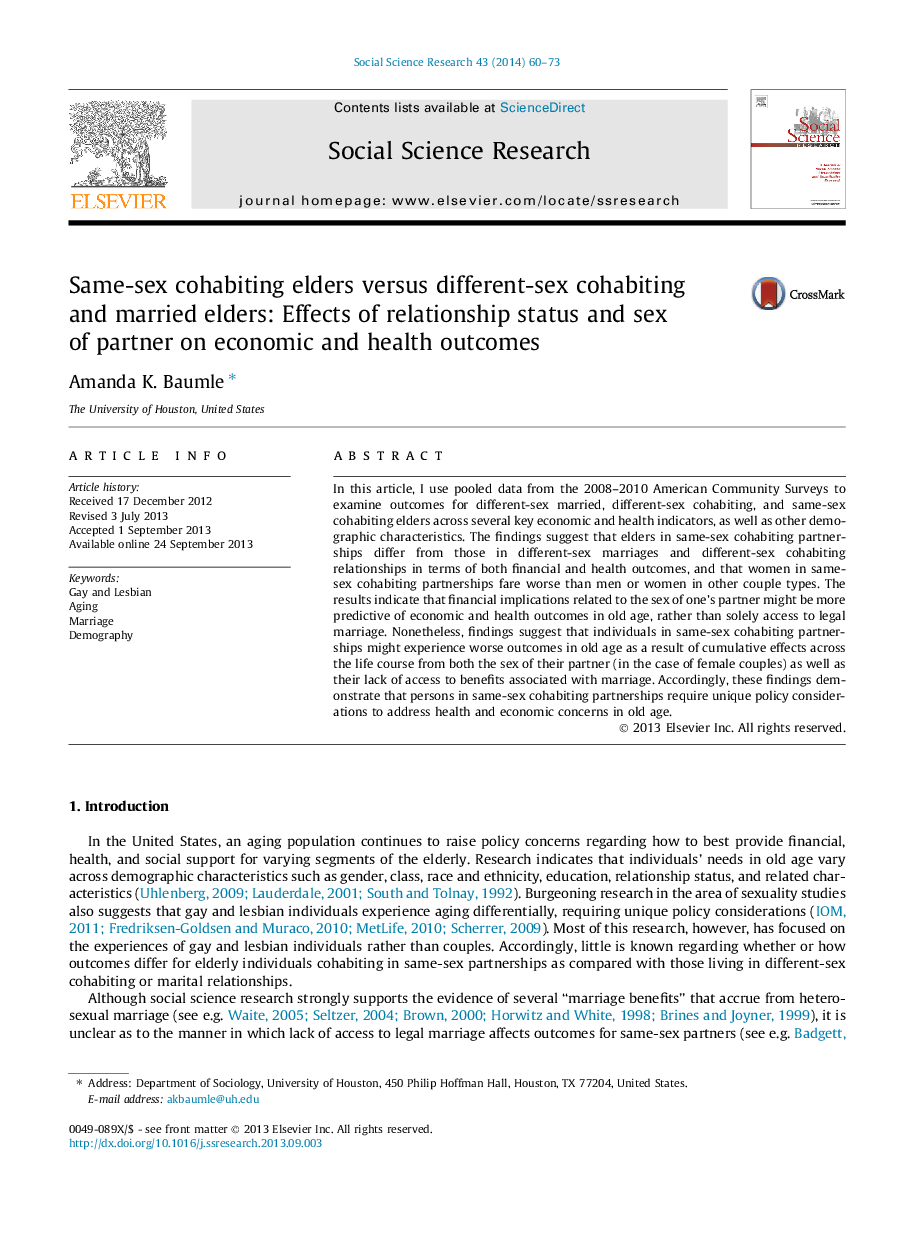| Article ID | Journal | Published Year | Pages | File Type |
|---|---|---|---|---|
| 955832 | Social Science Research | 2014 | 14 Pages |
Abstract
In this article, I use pooled data from the 2008-2010 American Community Surveys to examine outcomes for different-sex married, different-sex cohabiting, and same-sex cohabiting elders across several key economic and health indicators, as well as other demographic characteristics. The findings suggest that elders in same-sex cohabiting partnerships differ from those in different-sex marriages and different-sex cohabiting relationships in terms of both financial and health outcomes, and that women in same-sex cohabiting partnerships fare worse than men or women in other couple types. The results indicate that financial implications related to the sex of one's partner might be more predictive of economic and health outcomes in old age, rather than solely access to legal marriage. Nonetheless, findings suggest that individuals in same-sex cohabiting partnerships might experience worse outcomes in old age as a result of cumulative effects across the life course from both the sex of their partner (in the case of female couples) as well as their lack of access to benefits associated with marriage. Accordingly, these findings demonstrate that persons in same-sex cohabiting partnerships require unique policy considerations to address health and economic concerns in old age.
Related Topics
Social Sciences and Humanities
Psychology
Social Psychology
Authors
Amanda K. Baumle,
